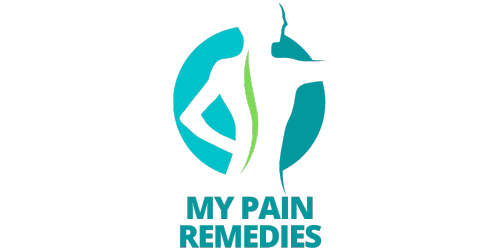Are you tired of the persistent discomfort that jaw pain brings? Look no further! In this article, you will discover a plethora of simple and effective natural remedies to alleviate that pesky jaw ache. Bid adieu to the inconvenience and discomfort, and say hello to a pain-free jaw!
Hot and Cold Therapy
Hot Compress
Applying a hot compress to your jaw can help alleviate pain and relax tense muscles. To do this, you can use a warm towel or a heating pad. Make sure the temperature is warm, not hot, and apply it to the affected area for about 15-20 minutes. The warmth will increase blood flow to the area, promoting healing and reducing discomfort.
Cold Compress
On the other hand, if your jaw pain is caused by inflammation or swelling, a cold compress can provide relief. Wrap an ice pack or a bag of frozen peas in a thin cloth and apply it to your jaw for about 10 minutes. The cold temperature will reduce swelling and numb the area, temporarily relieving pain.
Gentle Jaw Exercises
Jaw Stretching
Performing jaw stretching exercises can help improve flexibility and relieve tension in your jaw muscles. To stretch your jaw, simply open your mouth as wide as you comfortably can and hold for a few seconds. Then, slowly close your mouth and repeat the exercise several times. This gentle stretching can help reduce jaw pain and increase mobility.
Chin Tucks
Chin tucks are another effective exercise for relieving jaw pain. Start by sitting or standing up straight with your shoulders relaxed. Gently tuck your chin in towards your neck, as if you are making a double chin. Hold this position for a few seconds and then release. Repeat the exercise several times throughout the day to strengthen your jaw muscles and improve posture.
Resisted Opening and Closing
Resisted opening and closing exercises can be done using your hand for resistance. Place your thumb under your chin and open your mouth slowly while applying gentle upward pressure with your thumb. Hold the position for a few seconds and then close your mouth while resisting the movement with your hand. This exercise helps strengthen your jaw muscles and improve their range of motion.
Side-to-Side Jaw Movement
To perform side-to-side jaw movements, keep your teeth slightly apart and move your jaw to the right as far as you can without pain. Hold this position for a few seconds and then slowly move your jaw to the left. Repeat this exercise several times to alleviate tension in your jaw muscles and increase flexibility.
Relaxation Techniques
Deep Breathing
Deep breathing is a simple yet powerful relaxation technique that can help reduce jaw pain caused by stress and tension. Find a quiet and comfortable place to sit or lie down. Close your eyes and take a slow, deep breath in through your nose, allowing your abdomen to rise. Hold your breath for a few seconds and then exhale slowly through your mouth. Repeat this deep breathing exercise multiple times, focusing on relaxing your jaw muscles with each breath.
Progressive Muscle Relaxation
Progressive muscle relaxation is a technique that involves systematically tensing and relaxing different muscle groups in your body to release tension and promote relaxation. Begin by tensing the muscles in your jaw for a few seconds and then release the tension, allowing your jaw to completely relax. Move on to other muscle groups, such as your shoulders, arms, and legs, repeating the process. This technique can help reduce jaw pain and promote overall relaxation.
Yoga
Yoga combines physical postures, breathing exercises, and meditation to promote relaxation and alleviate stress. Certain yoga poses can specifically target the jaw muscles and relieve tension. Poses such as the seated twist, lion’s breath, and forward fold can help stretch and relax the muscles in your jaw, reducing pain and discomfort. Consider incorporating yoga into your daily routine to support jaw health and overall well-being.

Meditation
Meditation is a practice that involves focusing your attention and eliminating the stream of thoughts that may be causing stress and tension. Find a quiet space and sit comfortably. Close your eyes and bring your attention to your breath. Allow your breath to relax and deepen as you let go of any thoughts or worries. Meditation can help calm both your mind and body, allowing your jaw muscles to relax and relieve pain.
Dietary Changes
Soft Foods
Consuming soft foods can reduce the strain on your jaw and minimize discomfort. Opt for foods that require minimal chewing, such as soups, smoothies, mashed potatoes, and yogurt. Avoid hard or chewy foods that can exacerbate jaw pain and make it difficult to eat comfortably. By incorporating soft foods into your diet, you can give your jaw a break and promote healing.
Avoid Chewing Gum
Chewing gum places unnecessary stress on your jaw muscles and can contribute to jaw pain. Avoid chewing gum to prevent aggravating your symptoms. If you have a habit of chewing gum, consider finding an alternative, such as sugar-free mints or herbal lozenges, to satisfy your oral fixation without straining your jaw.
Reduce Alcohol and Caffeine Intake
Alcohol and caffeine are known to increase muscle tension and exacerbate jaw pain. Both substances can interfere with your sleep and contribute to stress and anxiety, amplifying jaw-related discomfort. Limit your alcohol and caffeine intake to support muscle relaxation and reduce the likelihood of experiencing jaw pain.
Herbal Remedies
Turmeric
Turmeric contains a compound called curcumin, which has anti-inflammatory properties that may help reduce jaw pain. You can incorporate turmeric into your diet by adding it to your meals or drinks. Alternatively, you can make a paste by mixing turmeric powder with water and apply it topically to the affected area. Consult with a healthcare professional before using turmeric as a treatment for jaw pain.
Ginger
Ginger has natural anti-inflammatory and pain-relieving properties that can alleviate jaw discomfort. You can consume ginger tea or chew on small pieces of fresh ginger to obtain its benefits. Additionally, you may find relief by applying ginger essential oil topically to the jaw area. As with any herbal remedy, it’s essential to consult with a healthcare professional before using ginger for jaw pain.
Chamomile
Chamomile is known for its calming properties and can help relax tense jaw muscles. Brew chamomile tea and drink it warm before bedtime to promote relaxation and relieve jaw pain. You can also apply chamomile essential oil topically to the jaw area for targeted relief. However, it’s important to consult with a healthcare professional before using chamomile as a treatment for your jaw pain.
Peppermint
Peppermint has a cooling effect and can provide temporary relief from jaw pain. Drink peppermint tea or apply diluted peppermint essential oil to the jaw area for a soothing sensation. Peppermint should be used with caution, as it can cause a burning sensation in some individuals. Consult your healthcare professional before using peppermint as a remedy for jaw pain.
Essential Oil Therapy
Lavender Oil
Lavender oil is renowned for its calming properties and can help reduce stress and tension, which can contribute to jaw pain. Dilute a few drops of lavender essential oil with a carrier oil, such as coconut oil, and gently massage it into your jaw area. The pleasant aroma of lavender can also have a relaxing effect on your mood and aid in pain relief.

Peppermint Oil
Peppermint oil has a cooling sensation that can provide temporary relief from jaw pain. Mix a few drops of peppermint essential oil with a carrier oil and apply it topically to your jaw area. Avoid contact with your eyes and mucous membranes, as peppermint oil can cause irritation. Peppermint oil should be used sparingly and with caution.
Eucalyptus Oil
Eucalyptus oil has analgesic properties and can help alleviate jaw pain. Dilute a few drops of eucalyptus essential oil with a carrier oil and gently massage it into your jaw area. The aroma of eucalyptus can also help clear your sinuses and promote relaxation. However, it’s important to consult with a healthcare professional before using eucalyptus oil for jaw pain.
Clove Oil
Clove oil contains eugenol, which has natural analgesic properties that can provide temporary relief from jaw pain. Dilute a few drops of clove essential oil with a carrier oil and apply it topically to your jaw area. Clove oil should be used with caution, as it can cause irritation or an allergic reaction in some individuals. Consult with a healthcare professional before using clove oil as a remedy for jaw pain.
Over-the-Counter Pain Relief
Nonsteroidal Anti-Inflammatory Drugs (NSAIDs)
Nonsteroidal anti-inflammatory drugs, such as ibuprofen or naproxen sodium, can help reduce jaw pain caused by inflammation. These medications can be purchased over the counter and should be taken according to the recommended dosage instructions. NSAIDs can provide temporary relief from jaw pain, but it’s important to consult with a healthcare professional if you require long-term pain management.
Topical Pain Relievers
Topical pain relievers, such as creams or gels containing ingredients like lidocaine or menthol, can be applied directly to the jaw area for localized pain relief. These products work by numbing the skin and underlying tissues, temporarily relieving pain. Follow the instructions provided with the specific product and consult with a healthcare professional if you have any concerns.
Stress Management
Identify and Reduce Stress Triggers
Stress can contribute to jaw pain and tension. Take the time to identify and address the sources of stress in your life. Whether it’s work-related pressures, personal relationships, or financial concerns, finding healthy ways to manage stress can help alleviate jaw pain. Consider making changes such as setting boundaries, practicing time management, or seeking assistance to reduce stress.
Practice Relaxation Techniques
Engaging in relaxation techniques can help counteract stress and promote relaxation in your jaw muscles. Incorporate deep breathing exercises, meditation, or progressive muscle relaxation into your daily routine. By dedicating time to relax and destress, you can reduce tension in your jaw and minimize pain.
Seek Support from Friends and Family
Sometimes, sharing your concerns and seeking support from loved ones can help alleviate stress and reduce jaw pain. Talking to a trusted friend or family member about your worries and challenges can provide emotional support and perspective. Remember that you don’t have to face your problems alone, and reaching out for support can make a significant difference.
Consider Therapy
If your jaw pain is caused by chronic stress, anxiety, or other underlying psychological factors, it may be beneficial to seek professional therapy. A therapist can help you explore coping strategies, manage stress, and work through any underlying emotional issues that may be contributing to your jaw pain. Therapy can provide valuable tools and support for long-term stress management and pain relief.
Posture Correction
Maintain Good Posture
Poor posture can contribute to jaw pain by placing additional strain on your jaw muscles. Make a conscious effort to maintain good posture throughout the day. Sit or stand up straight, aligning your head, neck, and spine. Avoid slouching or hunching forward, as this can put unnecessary stress on your jaw.
Avoid Forward Head Position
Be mindful of your head position, particularly when using electronic devices or sitting at a desk. Avoid jutting your head forward or looking down for extended periods. Instead, aim to keep your head aligned with your spine to reduce tension in your jaw muscles and promote proper posture.
Use Ergonomic Support
If you spend extended periods sitting at a desk, consider using ergonomic support to maintain proper alignment and reduce strain on your jaw muscles. Use an ergonomic chair that supports your back and promotes good posture. Ensure that your workstation is set up correctly, with your computer monitor at eye level and your keyboard and mouse within easy reach.
Acupuncture
Traditional Chinese Medicine Approach
Acupuncture, a traditional Chinese medicine practice, involves the insertion of thin needles into specific points on the body to promote healing and alleviate pain. Acupuncture has been used for centuries to treat various conditions, including jaw pain. By stimulating specific acupuncture points, an acupuncturist aims to restore balance and flow of energy in the body, potentially reducing jaw discomfort.
Needle Placement and Benefits
During an acupuncture session for jaw pain, the acupuncturist may focus on specific points in the head, face, neck, and jaw area. The placement of the needles is determined by the individual’s symptoms and underlying causes of their jaw pain. Acupuncture sessions can promote relaxation, reduce inflammation, and improve blood flow, which may lead to pain relief and improved jaw function.
In conclusion, there are various natural remedies and techniques that can help alleviate jaw pain. From hot and cold therapy to relaxation techniques and dietary changes, these strategies can provide relief and improve jaw function. Additionally, herbal remedies, essential oil therapy, over-the-counter pain relief, stress management, posture correction, and acupuncture offer alternative approaches to manage and reduce jaw pain. It’s essential to consult with a healthcare professional before trying any new remedies or techniques, as they can provide personalized advice based on your specific condition. By incorporating these natural remedies into your daily routine, you can take a proactive approach to managing jaw pain and promoting overall well-being.


